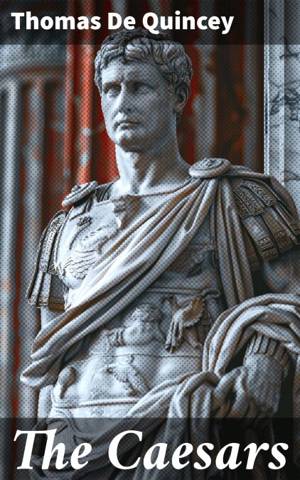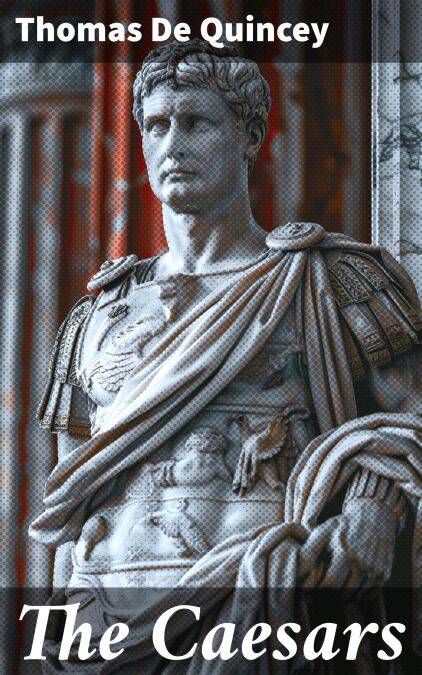
- Afhalen na 1 uur in een winkel met voorraad
- Gratis thuislevering in België vanaf € 30
- Ruim aanbod met 7 miljoen producten
- Afhalen na 1 uur in een winkel met voorraad
- Gratis thuislevering in België vanaf € 30
- Ruim aanbod met 7 miljoen producten
Zoeken
The Caesars E-BOOK
Exploring the Rise and Fall of Roman Emperors through Literature and History
Thomas De Quincey
E-book | Engels
€ 0,49
Uitvoering
Omschrijving
In "The Caesars," Thomas De Quincey embarks on a captivating exploration of the Roman Empire through a unique fusion of historical narrative and personal reflection. Employing a lyrical yet analytical prose style, De Quincey deftly interweaves the political intrigues and philosophical musings surrounding the lives of great emperors such as Julius Caesar and Augustus. His work not only seeks to unveil the complexities of imperial power but also provocatively examines the moral consequences of tyranny and ambition within the context of a burgeoning modernity in the 19th century. As a part of the Romantic literary movement, De Quincey's introspective approach highlights the psychological dimensions of historical figures, inviting readers to reflect on the nexus of history and personal identity. Thomas De Quincey, a prominent figure in the Romantic literary canon, is best known for his seminal work "Confessions of an English Opium-Eater." His own tumultuous life, marked by addiction and a fervent philosophical inquiry, deeply informed his writing. De Quincey's fascination with the darker aspects of human nature resonates throughout "The Caesars," as he seeks to understand the motivations and outcomes of power wielded by historical figures, a recurring theme in his oeuvre. For readers intrigued by the intricacies of power, morality, and historical narrative, "The Caesars" offers a rich tapestry of insights. De Quincey's blend of personal introspection and scholarly rigor presents a thought-provoking examination of one of history's most fascinating epochs. This book is an essential read for those interested in the intersection of literature, history, and the human condition.
Specificaties
Betrokkenen
- Auteur(s):
- Uitgeverij:
Inhoud
- Aantal bladzijden:
- 248
- Taal:
- Engels
Eigenschappen
- Productcode (EAN):
- 4057664604125
- Verschijningsdatum:
- 25/11/2019
- Uitvoering:
- E-book
- Beveiligd met:
- Digital watermarking
- Formaat:
- ePub

Alleen bij Standaard Boekhandel
Beoordelingen
We publiceren alleen reviews die voldoen aan de voorwaarden voor reviews. Bekijk onze voorwaarden voor reviews.











